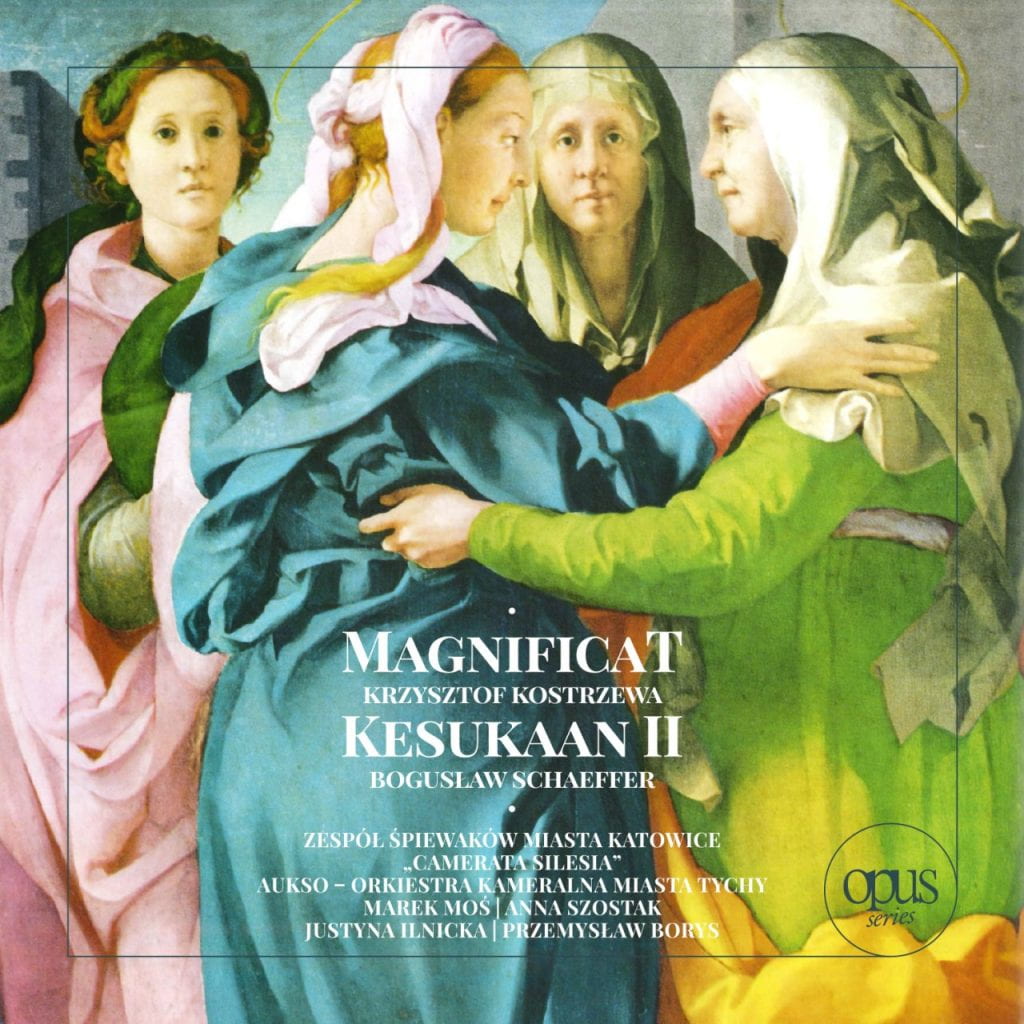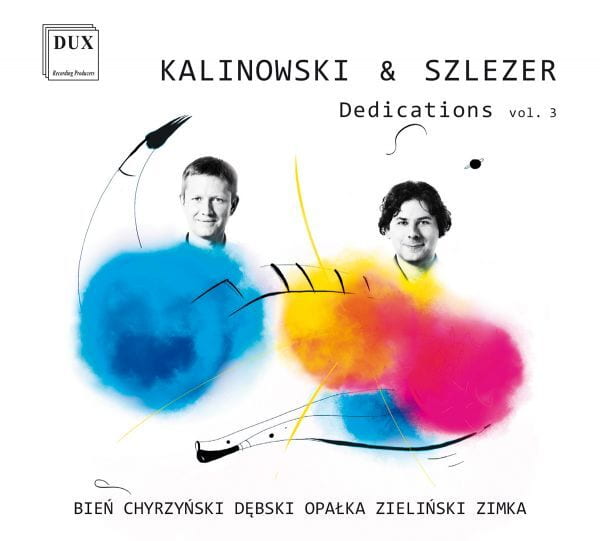Exciting Library Additions

Sławomir Dobrzański, concert pianist, professor at Kansas State University and a biographer of Maria Szymanowska (PMHS Vol. 9), recently sent us several very interesting publications and recordings that will enrich our holdings. First, there are two orchestral scores, Canto di Aspirazione for Orchestra by Felix Łabuński (1892-1979) and Magnificat for soprano and tenor soloists, four-part choir, and orchestra, a 2008 composition by Krzysztof Kostrzewa (b. 1961). In addition to Kostrzewa’s score, there is his publication Mój Magnificat w kontekście postmodernistycznych technik kompozytorskich [My Magnificat in the context of the postmodernist compositional techniques], dedicated to his professor of composition, Bogusław Schaeffer.
We also received a few CD recordings from Prof. Dobrzański, including a DUX release titled Piano Preludes (DUX 0699) with compositions by Henryk Mikołaj Górecki, Wojciech Kilar, Krzysztof Knittel, Miłosz Magin, Zygmunt Mycielski, Paweł Mykietyn, and Kazimierz Serocki in performance by pianist Magdalena Prejsnar.
Stanisław Wisłocki (1921-1998), an internationally acclaimed conductor and long-time leader of the Warsaw Philharmonic, is less-well known as a composer. Thanks to a recent 2-CD set published by the Chopin Music University (UMFC CD 192-193), the worldwide public now has a chance to hear a broad selection of Wisłocki’s solo and chamber works. The first CD features Two Suites for Piano (1943) and Little Suite for Piano (1951), while the second has a cycle of songs for voice and piano to words by the Rumanian poet, Ion Minulescu and the Sonata in F major for Violin and Piano—both works written during Wisłocki’s wartime exile in Rumania. An excellent program booklet with extensive notes in Polish and English completes this very successful release.
Finally, there is a disc with Krzysztof Kostrzewa’s Magnificat for soloists, chorus and orchestra and Bugusław Schaeffer’s Kesukaan II for 13 String Instruments. This elegantly produced recording on the Opus label was made with support from the Rzeszów University, the publisher of Mr. Kostrzewa’s score for Magnificat and his publication on the same subject.
Szlezer Recordings

Pianist Marek Szlezer (well-known to audiences in Los Angeles and Paso Robles as part of the Cracow Duo with cellist Jan Kalinowski), recently visited the PMC with his family. It was but a short stop on their whirlwind vacation swing through California, Nevada, and New York in late August. During his brief visit with us, Marek presented the PMC with two of his most recent recordings issued on the DUX label. The first is Dedications, Vol. 3 (DUX 1993), featuring works by contemporary Polish composers including Mateusz Bień, Marcel Chyrzyński, Krzesimir Dębski, Tomasz Opałka, Maciej Zieliński and Maciej Zimka. Some of the compositions on this recording—Zieliński’s Three Dreams and a Lullaby, Opałka’s The Glitch, and Bień’s The Wind, I Watched It Dance…—were actually premiered at PMC concerts held at USC and HMLA during the past two years. Another work, Krzesimir Dębski’s Pianocello! will receive its American premiere when the Cracow Duo performs it live at the Paderewski Festival in Paso Robles on Friday, November 3.
The second CD we received from Marek Szlezer is his solo reading of Chopin’s selected piano works. Marek’s affinity for Chopin and his insightful interpretations of Chopin’s music can be heard on this DUX release that opens quite festively and majestically with Two Polonaises, Op. 40, and is followed by Two Nocturnes, Op. 48. Also on this recording the listener will be delighted to find Chopin’s Ballade No. 4, Berceuse, Op. 57, Three Mazurkas, Op. 59 and the magnificent Polonaise-Fantasy, Op. 61.
To round off his all-Chopin recital, Marek Szlezer added two encore-like selections, including the E-flat minor Prelude (op. posthumous, edited by the performer), as well as his own piano transcription of Chopin’s song for voice and piano, Wiosna [Spring], Op. 74 no. 2. Commenting on these last two works, the pianist confessed that, “Chopin is always deeply personal for me, and his music represents a return to my ‘home base.’ I hope that you will judge this return favorably.”